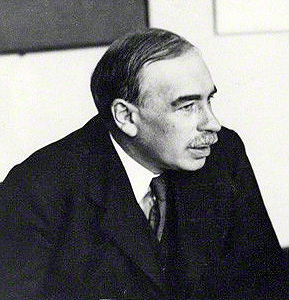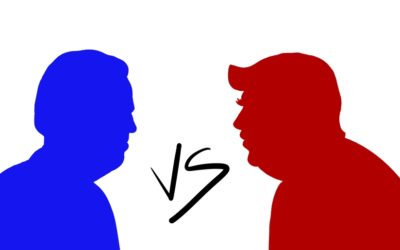While it is difficult to choose among them, arguably the most pernicious part of John Maynard Keynes’ legacy is his misunderstanding of what savings and interest rates are, and how they related to the rest of the economy. These mistakes were passed on to his followers and remain with us today—as anyone who has had the misfortune of reading a Paul Krugman column in The New York Times is well aware.
Savings, we are told, hurt the economy because they depress spending, and as the economy is driven by spending, savings are anathema to a healthy economy. But is that the case? As any studied Austrian knows, the answer is an emphatic no!
Keynes’ mistake likely stems from the fact that he was not trained as an economist, and, for all his reputation as such, he was a poor economic historian, with a particularly impoverished understanding of the classical political economists like Adam Smith, David Ricardo, and John Stuart Mill. After just eight weeks of studying economics as an undergraduate at university, Keynes gave up the subject as boring. Instead, much like Warren Mosler, one of the most radical post-Keynesians to date and father of Modern Monetary Accounting, also known as Modern Monetary Theory (MMT), Keynes got the majority of his economic education by successfully speculating in financial markets.
When it comes to savings, Keynes’ mistake was not understanding that savings are being spent. It should be obvious, but when someone saves, whether by putting their money in a savings account, CD, or any investment asset, they are purchasing interest or a dividend. Of course, there is no such thing as a free lunch, and the institution paying the interest, whether it is a bank, corporation, or government, turns around and spends the money itself, hiring workers, investing in improved methods of production, technology, or issuing stocks or bonds for further purchase.
So, as we can clearly see, far from savings being bad for the economy because they depress spending, savings are spending twice!
Keynes’ confusion on such a simple point of classical economic theory is far from confined to saving, pernicious enough as that single mistake is. As the Independent Institute’s James C. W. Ahiakpor points out in his book Macroeconomics without the Errors of Keynes, much of macroeconomics to this day is plagued by several other misrepresentations of the classical economists, perpetrated by Keynes through his ignorance. Apart from failing to note that savings are, in the terms utilized by Adam Smith, “Reproductive Spending,” as opposed to spending in the everyday sense, buying gas for your car, groceries, which he termed “Unproductive” spending, or “Consumption,” in his ubiquitous General Theory Keynes also manages to distort capital, investment, and even money.
Capital, understood in the classical sense, is limited to borrowed savings. Starting with Keynes and his ignorance or misinterpretation, “Capital” became “Finance,” or “Financial Capital,” while the means of production, which are purchased with capital proper—assuming they were not purchased with a business’ cash reserves—became “Capital,” or “Physical Capital.” A harmful and unnecessary reformulation that continues to confuse proper macroeconomic analysis—as Hayek labored to illustrate in his monumental Pure Theory of Capital.
With regards to investment among the classical political economists, investment constituted the purchasing of a financial asset, or making the funds available, via borrowing, in order that businesses could use that money to purchase machinery, labor, or raw materials. Whereas for Keynes, investment is restricted to the buying of capital goods. He fails to make the connection between the two. Again, the source of this error likely finds its roots in Keynes’ misunderstanding of what savings are: the engine of a productive economy.
And then there is money. On this count Keynes is responsible for giving us the M1 and M2 measurements, as a result of neglecting the strict definition of money proper, as provided by the classical economists. “Money” is hard specie or centrally circulating notes backed by specie—not savings. By failing to make this crucial distinction, Keynes, his disciples, and those influenced by his thinking, including Milton Friedman, have done a great disservice to the furtherance of proper macroeconomic analysis.
Which finally brings us to interest rates. Interest rates, properly understood, are prices, and prices are the signals used by businesses and consumers to make decisions about their present and future circumstances. Among the many crimes against logic committed daily by central banks around the world is their determined manipulation of interest rates. Determined to depress interest rates and keep the economy brimming with money, they not only create unnatural uncertainty, but they punish savers, investors, and businesses attempting to run their finances successfully. Far from attempting to maintain the purchasing power of the currency they are given monopoly stewardship over, central bankers set inflation targets. As a matter of policy, they intend to steal from those who have had the fiduciary sense and responsibility upon which a real, healthy economy subsists.
According to such economists as the aforementioned Paul Krugman, about 3% of such stealing annually is “good” for the economy.
We know from Friedrich Engels that near the end of his life Karl Marx sent an angry letter to several prominent, active young Marxists, penning the now famous line, “What is certain is that [if they are Marxists], [then] I myself am not a Marxist.” In a far less well-known exchange, but which James C. W. Ahiakpor recounts in his book, by 1944 Keynes too, listening to a talkative milieu of the eager disciples he had amassed, pronounced himself “Not a Keynesian.” Perhaps, had he lived, Keynes would have seen the full extent of his errors, and been able to steer his disciples from the new doctrine of constant interference in the economy they were now peddling—just as he was shifting away. But Keynes unexpectedly died in April 1946, just as it seems he was beginning to understand all of the above mistakes, as his final, posthumously published papers show, papers some of those disciples attempted, unsuccessfully, to suppress.
One wonders, this information being now widely and readily available, why we are still living in a macroeconomic world defined by the mistakes of Keynes?












